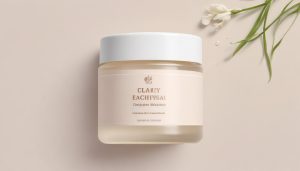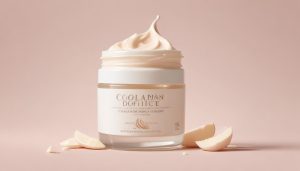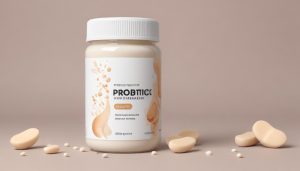The Surprising Benefits of Collagen for Your Skin
Natalie Brooks August 23, 2025
Curious about collagen and radiant skin? This in-depth guide explores the science, trends, and real experiences behind collagen supplements, natural beauty routines, and how nutrition and lifestyle affect skin health. Discover what many miss about boosting skin elasticity for a glowing complexion.
Understanding Collagen and Its Role in Skin Health
Collagen is a structural protein that acts like scaffolding for the skin, contributing to its firmness, elasticity, and youthful appearance. Most people associate collagen with beauty creams, but it naturally occurs within the body and is crucial for connective tissues. Collagen production, however, begins to slow in our mid-20s, which may lead to visible signs of aging such as wrinkles and fine lines over time. Experts suggest supporting your natural collagen through well-rounded nutrition, including vitamin C and certain amino acids, to optimize the skin’s texture and resilience.
The beauty of collagen goes beyond just aesthetics. For many, it plays a significant role in overall wellness by assisting the body in wound healing and strengthening hair and nails. In the skincare industry, collagen peptides—broken down forms of collagen that are more easily absorbed—are trending in supplements and topical formulations. While topical collagen’s effectiveness is debated, research shows that ingestible forms can influence skin hydration, smoothness, and elasticity when paired with a healthy lifestyle (Source: https://www.ncbi.nlm.nih.gov/pmc/articles/PMC6835901/).
Collagen is not a one-size-fits-all remedy. Genetics, sun exposure, diet, and stress all affect how quickly one’s collagen depletes. The beauty world’s focus on collagen is now shifting to a more holistic perspective that includes sun protection, maintaining hydration, and reducing environmental stressors like pollution and smoking. Adopting collagen-friendly habits may be more beneficial for long-term skin health than any product alone.
Popular Collagen Supplements: What Science Supports
The market for collagen supplements has exploded in recent years. Powders, capsules, gummies, and drinks are widely available, each promising different benefits. But what does science say about ingested collagen for your skin? Recent studies suggest hydrolyzed collagen supplements, which are broken down for better absorption, can help improve skin elasticity and reduce the appearance of wrinkles. In a randomized controlled trial, adults who consumed collagen peptides daily reported smoother, more hydrated skin after two months (Source: https://www.sciencedirect.com/science/article/pii/S0965229919311155).
Choosing the right supplement can feel overwhelming with so many options available. Experts recommend looking for products that contain hydrolyzed or “type I and III” collagen, as these types are most closely linked to skin structure. It’s also important to read independent lab reports or third-party certifications on supplement safety and quality. Like any wellness trend, results can vary based on factors such as age, lifestyle, and overall diet.
Several nutritionists point out that dietary collagen alone might have limited effect without other skin-supporting nutrients. Vitamin C, copper, and zinc all play synergistic roles in collagen synthesis. Many high-quality collagen supplements include these co-factors to maximize their benefit. Consumer experiences suggest consistent, long-term use leads to more noticeable improvements—but it’s always wise to approach new supplements with realistic expectations backed by scientific findings (Source: https://www.health.harvard.edu/blog/collagen-supplements-do-they-work-2019081617650).
Natural Ways to Boost Collagen Production
Healthy diet habits are fundamental to promoting collagen production at any age. Foods rich in vitamin C, such as citrus fruits and bell peppers, assist natural collagen synthesis. Amino acids from protein sources—like fish, eggs, beans, and lean meats—act as the building blocks for collagen formation. Antioxidant-rich berries and leafy greens also help protect collagen from free radical damage, preserving the skin’s plumpness and tone.
Some people turn to natural remedies to help stimulate the body’s collagen output. For example, regular facial massages can encourage circulation and activate the cells responsible for collagen synthesis. DIY face masks made from egg whites, aloe vera, or vitamin C-rich lemon juice have been discussed in wellness communities as supportive, though these should complement a balanced skincare and nutrition plan, not replace science-backed strategies.
Lifestyle choices also impact collagen preservation. Excess UV radiation rapidly breaks down collagen fibers, leading to premature aging. Daily sun protection with SPF and wearing protective clothing are considered essential. Managing stress, exercising regularly, and getting enough quality sleep all contribute to hormonal balance, which may also protect the body’s natural collagen stores over time (Source: https://www.aad.org/public/everyday-care/skin-care-basics/dry/collagen-boosting).
Exploring Collagen’s Role in Trending Beauty Routines
The beauty industry has fully embraced collagen, integrating it into a wide variety of products beyond oral supplements—think sheet masks, night creams, and even makeup primers. Some consumers seek fast results with collagen injections or professional treatments in dermatology clinics. While these procedures may temporarily restore volume or texture, they do not increase the body’s own collagen supply, which primarily requires internal synthesis and care.
Emerging trends include at-home micro-needling and LED light therapy, both designed to indirectly stimulate collagen. Micro-needling, using tiny needles to trigger skin renewal, and red light treatments promote the repair mechanisms in the skin. Such methods show promise, but safety guidelines must be followed to avoid irritation or long-term damage. Interest in non-invasive beauty technology keeps growing as individuals look for gentle yet effective solutions to aging skin.
Many beauty devotees are learning that true skin health often requires blending science-backed products, professional guidance, and everyday self-care routines. Tracking results and adjusting habits over time is key. Combining topical skincare, healthy nutrition, and occasional targeted treatments may optimize the benefits of collagen for a vibrant, resilient complexion that ages with grace (Source: https://pubmed.ncbi.nlm.nih.gov/34092476/).
The Future of Collagen in Wellness and Beauty
Collagen is now positioned at the intersection of beauty, wellness, and holistic health movements. Ongoing scientific research is expanding our understanding of how lifestyle and emerging therapies affect the skin’s collagen levels. Technology continues to bring innovations, such as bioavailable peptides and advanced delivery systems, which may make collagen support more effective and personalized in the coming years.
Sustainability is also entering the conversation. More companies are sourcing collagen from marine or plant-based alternatives to meet ethical or dietary preferences, and there’s increasing scrutiny on environmental impact. Transparency in sourcing and testing ingredients is becoming a major selling point for discerning beauty consumers who care about both their health and the planet (Source: https://www.niehs.nih.gov/health/topics/agents/sustainability/index.cfm).
Finally, the rising focus on holistic routines highlights the importance of self-care rituals that address both inner and outer wellness. Adopting a mindful approach—balancing smart nutrition, movement, and consistent skin protection—may support collagen naturally with fewer risks. As more is discovered, staying informed and critical about new beauty breakthroughs will keep you ahead in nurturing resilient, glowing skin.
References
1. Sibilla, S., Godfrey, M., Brewer, S., Budh-Raja, A., & Genovese, L. (2015). An overview of the beneficial effects of hydrolyzed collagen on skin properties: Eight weeks double-blind, placebo-controlled study. Journal of Medicinal Food, 18(12), 1340–1348. Retrieved from https://www.ncbi.nlm.nih.gov/pmc/articles/PMC6835901/
2. Minaguchi, J., Kubo, K., & Okamoto, N. (2019). Oral supplementation with specific collagen peptides improves skin elasticity, hydration, and wrinkling in a randomized controlled trial. Nutrients, 11(10), 2424. Retrieved from https://www.sciencedirect.com/science/article/pii/S0965229919311155
3. American Academy of Dermatology Association. (2023). Collagen: Nutrition and more. Retrieved from https://www.aad.org/public/everyday-care/skin-care-basics/dry/collagen-boosting
4. Harvard Health Publishing. (2019). Collagen supplements: Do they work? Retrieved from https://www.health.harvard.edu/blog/collagen-supplements-do-they-work-2019081617650
5. Zague, V., de Freitas, V. M., Rosa, M. C., et al. (2021). Collagen supplementation and skin health: Realistic outcomes. International Journal of Dermatology, 60(11), 1407–1414. Retrieved from https://pubmed.ncbi.nlm.nih.gov/34092476/
6. National Institute of Environmental Health Sciences. (2023). Sustainability in personal care products. Retrieved from https://www.niehs.nih.gov/health/topics/agents/sustainability/index.cfm







